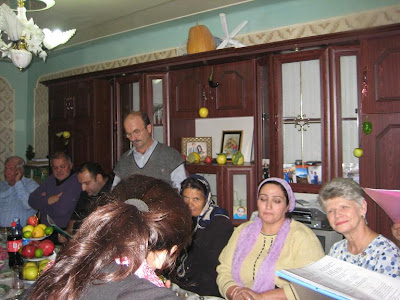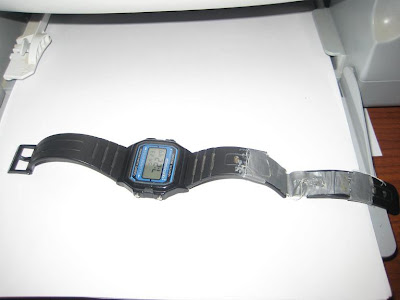




We have tried to keep up with the election process. We voted absentee and have reviewed the results. Even when we are in the minority, we definitely have an even greater appreciation for our democratic process. We can feel confident that our votes are counted.
The parliamentary elections in Azerbaijan are this Sunday November 7. There will be a few hundred international observers to view the process. A few long term observers are here now and have observed the pre-election procedures. We have had the privilege to meet two of the long term observers from the Organization of Security and Cooperation in Europe (OSCE). They have observed elections in several countries and their experiences have been enlightening to hear.
We have shared dinner with them on three occasions. Linda prepared fried chicken, mashed potatoes, green beans, and we shared our cherry cheese cake. We know they will never forget us after having had basically the same meal or two for almost 6 weeks.
We are so fortunate to have all our freedoms in the United States, but freedoms bring responsibility. We want to be even better citizens and we certainly will be more grateful for the American way of life.
We are within a few days of our return. And the photos are of good-byes.
Maybe it is time to come home when:
It is easier to see through your underwear than the water.
You dream about a good bed.
You wake up at 2:00 a.m. 2 weeks before you are leaving to think about what to pack.
You have said your goodbyes to dear friends.
You have to get to know your 2 new daughters-in-law.
You have only 1 roll of toilet paper left and you will not buy more.
You have ½ tube of toothpaste and you will not buy more.
You have 1 day of crackers and cheese.
YOU HAVE RUN OUT OF COFFEE.
You have less than ½ jar of peanut butter.
No more mayonnaise, eggs, milk, dish wash detergent, clothes detergent, any way you get the idea.
We will be sharing about our Azerbaijan experience at the Archie, Missouri Community Thanksgiving Service on November 21. During the time after our arrival, we will be sorting through pictures, remembering so many experiences, and most of all reflecting on how this experience has impacted us.
One thing Linda and I have agreed on is that we have much more confidence in our ability to adapt. We feel that going into the future we will be able to adjust to all of life’s circumstances. We don’t know exactly what the future may hold, but we will be looking for ways to serve.
See you soon.





































.JPG)








